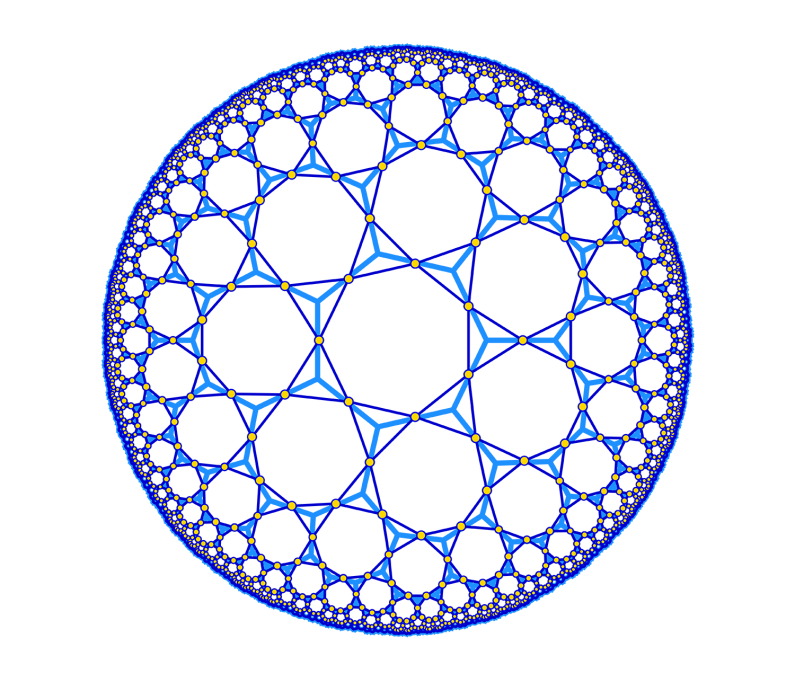
Hyperbolic Poincare Projection
The field of circuit QED has emerged as a rich platform for both quantum computation and quantum simulation. Lattices of coplanar waveguide (CPW) resonators realize artificial photonic materials in the tight-binding limit. Combined with strong qubit-photon interactions, these systems can be used to study dynamical phase transitions, many-body phenomena, and spin models in driven-dissipative systems. These waveguide cavities are uniquely deformable and can produce lattices and networks which cannot readily be obtained in other systems, including periodic lattices in a hyperbolic space of constant negative curvature, and the one-dimensional nature of CPW resonators leads to degenerate flat bands. In our lab, we build experimental implementations of these systems using superconducting circuits.
Postdoc and graduate student positions available! Send email to: akollar@umd.edu
Gapped Flat Band Lattice Interacting with Qubits
Lattices of coplanar waveguide resonators are a promising platform for studying exotic light-matter interactions. This device, the first ever of its kind, is now operational, featuring flux tunable transmon qubits coupled to a quasi-1D lattice has an interesting band structure, and includes a gapped flat-band. The transmon-lattice coupling shines light on the photonic band structure and produces new forms of photon-mediated qubit-qubit interaction.
Graphs May Prove Key in Search for Holy Grail of Quantum Error Correction
In February 2019, JQI Fellow Alicia Kollár, who is also an assistant professor of physics at UMD, bumped into Adrian Chapman, then a postdoctoral fellow at the University of Sydney, at a quantum information conference. Although the two came from very different scientific backgrounds, they quickly discovered that their research had a surprising commonality. They both shared an interest in graph theory, a field of math that deals with points and the connections between them. Their ensuing collaboration resulted in a new tool that aids in the search for new quantum error correction schemes—including the Holy Grail of self-correcting quantum error correction. They published their findings recently in the journal Physical Review X Quantum.